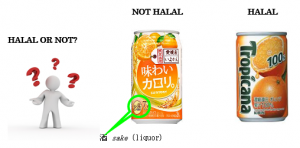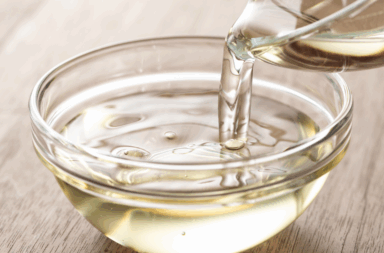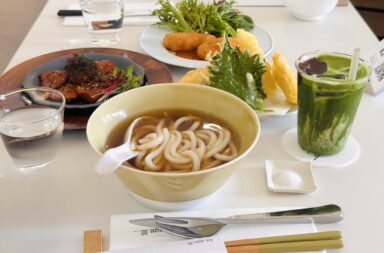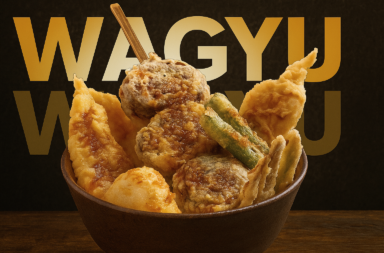This post is also available in: English Indonesia Melayu العربية
Written by Teguh-san
This is for everyone who plans to visit Japan and, somehow, worries over the difficulties in getting halal food, or for those who have arrived in Japan but still confused on how to distinguish the halal food and the non-halal food. In order for you to be able to notice whether the food is consumable for moslems, we will share you some tips.
Recently, we rarely find products with halal logo in Japan; therefore, we must carefully choose the foods or beverages we’d like to buy. Usually, we can easily find the ingredients on the backside of the packaging in all packaged foods or beverages, however, in Japan, they are written in Kanji letters. Accordingly, we suggest you to memorize or note down Kanji letters that relate to some ingredients that are forbidden (haram) for all moslems to consume.
For your reference, below we inform you some ingredients of foods and beverages (we may easily find them in the market) which are categorized as non-halal or are still in controvercy:
| No. | Japanese | Pronunciation | meaning |
|---|---|---|---|
| 1 | 豚 | buta / ton | pork |
| 2 | ポーク | pooku | pork |
| 3 | 鶏 | tori / niwatori | chicken meat (usually, the chickens aren’t halal, except if there is halal logo pasted on the packages) |
| 4 | 牛 | gyuu / ushi | beef (usually, the cows aren’t halal, except if there is halal logo pasted on the packages) |
| 5 | 肉 | niku | meat |
| 6 | ラード | raado | lard |
| 7 | ゼラチン | zerachin | gelatin (usually made of lard) |
| 8 | ショートニング | shootoningu | shortening (usually made of pork or animals) |
| 9 | 乳化材 | nyuukazai | emulsifier (except if there is an explanation of 大豆由来 daizu yurai (made of soybean) or 植物由来 (made of plants) ) |
| 10 | 酒 | sake | traditional Liquor |
| 11 | みりん | mirin | cooking liquor |
| 12 | リカー | rikaa | liquor |
| 13 | ワイン | wain | wine (liquor) |
| 14 | ビール | biiru | beer |



